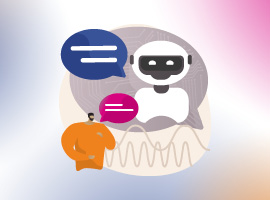ML Basics & Principles
Feb
2,
2024
Discover the power of address matching in real estate data management with this comprehensive guide. Learn how to leverage natural language processing (NLP) techniques using Python, including open-source libraries like SpaCy and fuzzywuzzy, to parse, clean, and match addresses. From breaking down data silos to geocoding and point-in-polygon searches, this...
Aug
29,
2023
As AI advances, calls for regulation are increasing. But viable regulatory policies will require a broad public debate. We spoke with Mhairi Aitken, Ethics Fellow at the British Alan Turing Institute, about the current discussions on risks, AI regulation, and visions of shiny robots with glowing brains.
Jun
5,
2023
The introduction of ChatGPT in late 2022 touched off a debate over the merits of artificial intelligence which continues to rage today.
Mar
30,
2023
At least since the arrival of ChatGPT, many people have become fearful that we are losing control over technology and that we can no longer anticipate the consequences they may have. AI Alignment deals with this problem and the technical approaches to solve it.
Aug
22,
2022
<div style="text-align: justify;">Java continuously introduces new, useful features. For instance, Java 8 introduced the Stream API, one of the biggest highlights of the past few years. But is aggregating data with the Stream API a panacea? In this article, I’d like to explore if there’s a better alternative for certain...
Jun
7,
2022
<div style="text-align: justify;">Modularization is frequently discussed, but after some time, the speakers realize that they don’t mean the same thing. Over the last fifty years, computer science has given us a number of good explanations about what modularization is all about—but is that really enough to come to the same...
Nov
9,
2021
<div style="text-align: justify;">According to research from last year, 2020 had an impact on business globally, but NLP was a bright spot for technology investments. That momentum has carried through to this year, but even still, we are just at the tip of the iceberg in terms of what NLP has...
Mar
15,
2021
<div style="text-align: justify;">Python has established itself as a quasi-standard in the field of machine learning over the last few years, in part due to the broad availability of libraries. It is logical that Oracle did not really like to watch this trend — after all, Java has to be widely...
May
5,
2020
With the emergence of deep neural networks, the question has arisen how machine learning models can be not only accurate but also explainable. In this article, you will learn more about explainability and what elements it consists of, and why we need expert knowledge to interpret machine learning results to...
Feb
11,
2020
Machine learning algorithms can cause the “black box” problem, which means we don’t always know exactly what they are predicting. This may lead to unwanted consequences. In the following tutorial, Natalie Beyer will show you how to use the SHAP (SHapley Additive exPlanations) package in Python to get closer to...
Join ML Conference and stay tuned!









